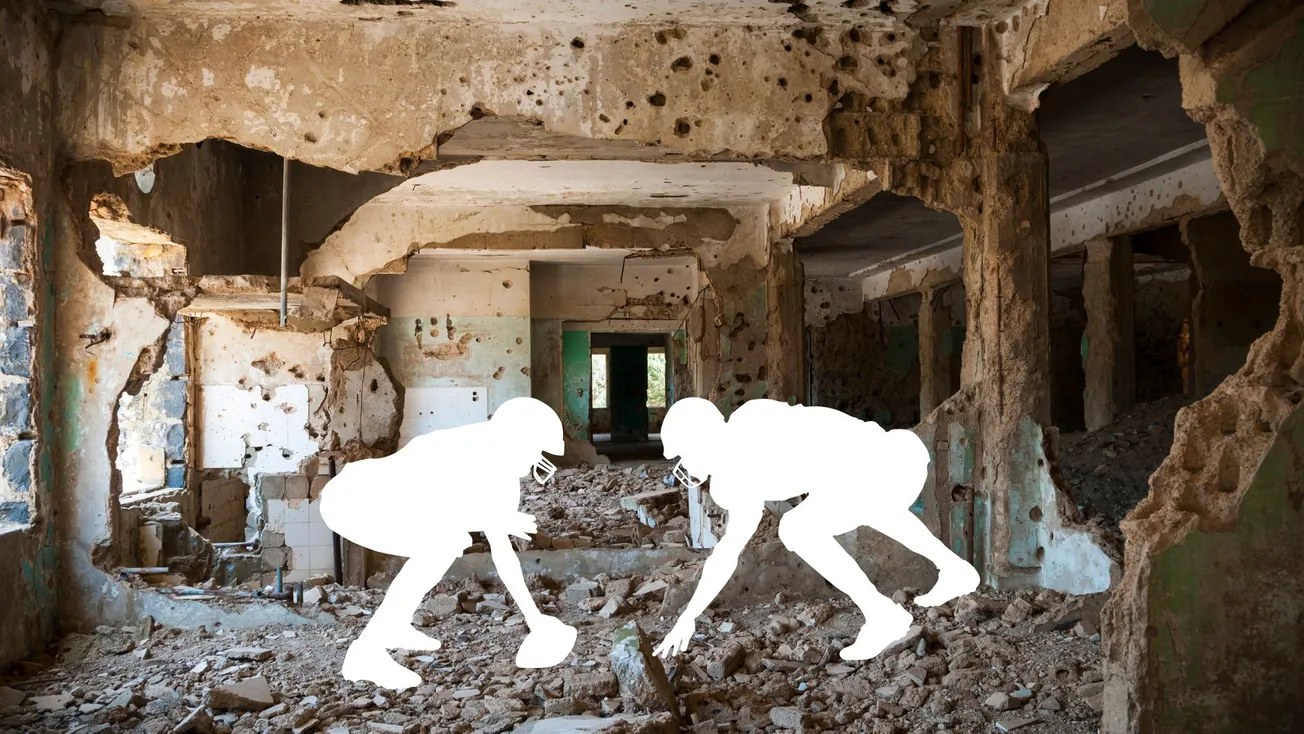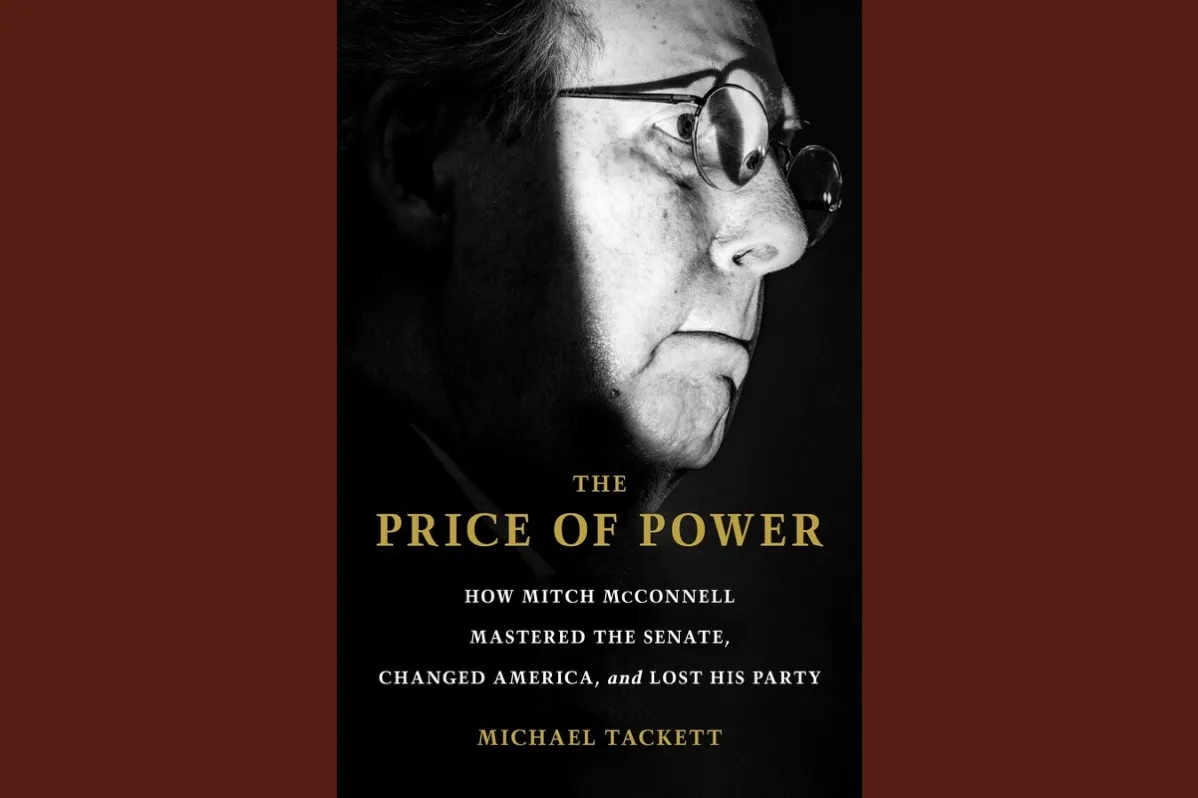Some fans are calling the Super Bowl a war. Indeed, football, especially at the NFL level, has long been a metaphor for war.
In a 1988 American Heritage magazine essay, James Weeks said likening football to war “found its quintessential application in an astonishing sentence the University of California president Benjamin Ide Wheeler wrote in a 1906 article.”
Said the prez: “Two rigid, rampart-like lines of human flesh have been created, one of defense, the other of offense, and behind the latter is established a catapult to fire through a porthole opened in the offensive rampart a missile composed of four or five human bodies globulated about a carried football with a maximum of initial velocity against the presumably weakest point in the opposing rampart.”
I’d bet the farm that nobody in the media will use “globulated” in covering Sunday’s showdown between the San Francisco 49ers and the Kansas City Chiefs in Las Vegas.
But odds are, we’ll hear a barrage of military terms trotted out to describe the action.
From time to time, journalists have criticized the war talk. But I haven’t heard much lately, probably because pro-football is more beloved than ever.
“More than any sport, football has polished its popularity with the words of war that are now ingrained in the game’s language,” the late Pulitzer Prize-winning New York Times sports columnist Dave Anderson wrote in the paper in 2003.
In a piece headlined “Sports of The Times: It’s Time to Clean Up the War Vocabulary in Sports,” he noted, “The long pass is the ‘bomb.’ Linebackers ‘blitz,’ short for blitzkrieg, the tactic used by the Nazis in swooping through neighboring nations in World War II. Coaches refer to the ‘point of attack’ in a running play. Wide receivers are a quarterback’s ‘weapons.’ The outside coverage specialists on a punt are ‘gunners.’ Football's ‘special teams’ are similar to special forces. And ‘game plan’ derives from battle plan.”
“There is a long tradition of likening football to war, from paeans to the ‘generalship’ of quarterbacks in the 1890s to the ‘wars in the trenches’ of the modern game,” wrote Michael Oriard in “Flag Football,” a 2009 Slate story. “While coaches and sportswriters have adopted military language over the years, the military has sometimes adopted football terminology, as in Operation Goalpost and Operation Varsity in World War II and Vietnam’s Operation Linebacker.
“ ... Football in the 1960s became political, not just warlike. An ardent fan of the game, President Richard Nixon also used football — see his calculated attendance at 1969’s “Game of the Century” between Arkansas and Texas — to identify with his ‘silent majority’ against his enemies. Pregame and halftime at the Orange Bowl (and soon the Super Bowl) became showcases for elaborate patriotic displays. Over time, football fans came to take this football-related patriotism — a brand of flag-waving more like superpatriotism — for granted, as if it were embedded in long tradition, perhaps even in the very nature of the game. It wasn’t and isn’t.”
Fans “talk about football as if it’s the same thing as going to war, which it’s not,” wrote Tracee Hamilton in The Washington Post in 2012. “Not by a long chalk.”
In her story, “Time to blow taps on football-as-war metaphors,” she faulted “many in the media. Television should get the lion’s share of the blame, but that’s not to say that radio, print, and online journalists aren’t at fault as well — not all of them, but many. I’m sure I’ve let a war metaphor slip into a column in the past, although I try to be vigilant, just as I did as an editor, when I would rewrite the lead of any story that tried to frame a college game as a life-or-death battle. But I was editor-vigilant, not soldier-on-sentry-duty vigilant.”
She complained that “coaches spout a lot of this war-speak, and the players spout what they hear their coach spout. That’s why you’ll get the postgame quotes such as, ‘It was a war out there’ or ‘It was kill or be killed.’ Commentators use it as well, and then it becomes part of the fans’ vocabulary. New terminology is added to the football dictionary all the time. ‘Red zone’ used to be an area in which you could not park; now it has its own television channel.”
Hamilton conceded that “Certain ‘war talk’ is part of the football lexicon, such as ‘blitzing’ and ‘bomb.’” She was not for banning the bomb, or blitzing. “I am suggesting we not add to the list. We should be better than that.”
“War is hell,” she wrote. “Football is a game.”
Football this Sunday is a game that will be played by well-compensated young professional male athletes, some of them millionaires. Injuries? Possible, even likely. Fatalities? No.
War is 10 young Americans in bloody air combat in over Nazi-occupied Europe. On May 29, 1943, they found themselves in sub-zero temperatures, four miles above France, in “Barrel House Bessie from Basin Street,” a lumbering, four-engine, Army Air Force B-17 long range bomber. Bessie was part of a mass air raid on concrete U-boat pens at St. Nazaire, France, dubbed “Flak City” for its extra-heavy concentration of anti-aircraft guns.
By the time the raiders bore in on the target, hundreds of miles from their English base, every one of Bessie's crew had been wounded by gunfire from German fighters or from flak along the way.
When the Americans reached the target, the sky grew black from flak bursts. After the “Flying Fortresses” dropped their bombs, a flak barrage crippled Bessie and destroyed two B-17s flying close by her.
The bombers were between 22,500 and 25,000 feet up. Bessie’s number two engine caught fire, and the heavy bomber nosed over into a near vertical dive. Bessie’s altimeter read 800 feet when the pilot and co-pilot, straining at the controls, managed to pull up and level off.
Limping home alone on three engines, Bessie was a sitting duck. Over the channel, a pair of German fighters attacked, their pilots probably figuring they had an easy kill. But British Spitfires arrived in the nick of time to drive them away.
With the “friendlies” circling Bessie, the B-17 kept losing altitude. To lighten the plane, the crew threw everything they could — including their parachutes — overboard. It was to no avail. The pilot ordered the crew to take “ditching positions,” which meant get inside the radio room and hold on the best they could.
The channel was choppy and churning with whitecaps. When Bessie hit, she burst into flames. Nine of the crew escaped by swimming through the blazing high-octane aviation gas on the water.
The crew, wearing life jackets, watched Bessie sink as they clung to a life raft that was so badly shredded that it couldn't be fully inflated. Unable to climb in, the crewmen held on and faced eventual death by hypothermia in 48 degree water.
The tail gunner was floating in the sea, dead. His buddies tried to retrieve his body, but it kept drifting away.
A British seaplane soon arrived but couldn’t land because the channel was too rough. It took a British rescue boat 90 minutes to find them.
The Americans pleaded with the skipper to bring back the tail gunner’s corpse. He refused, telling the Americans that he had orders not to take time to pick up bodies because to do so would endanger their lives and the lives of his crew from Nazi patrol boats and marauding aircraft. Staff Sgt. Bill Hack of Paducah, the 22-year-old right waist gunner, said they all watched the tail gunner float away “into oblivion.”
Already wounded in the shoulder, Hack nearly burned to death when Bessie ditched. When the bomber struck the water, the impact knocked him unconscious. “I was dazed,” said Hack, who retired as business manager of Paducah Ironworkers Local 782 in 1989 and died in 2016 at age 95. “But when I smelled my hair burning, it gave me the strength to live.”
Hamilton concluded, “It’s insulting to portray football as war, just as it’s insulting to portray war as a game. Let’s all try harder not to confuse the two.”
Let's try harder for sure, starting on Super Sunday.
--30--
Comments








